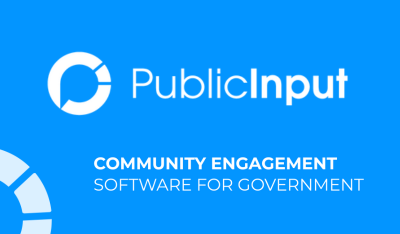
In a previous blog, we discussed how agile principles, successful in the business world, can be applied to state and local government’s community engagement processes. We presented a list of agile principles applied to how government and residents can navigate the public participation process more efficiently.
Now, let’s delve deeper into practical ways state and local governments can implement individual agile principles in their community engagement efforts, beginning with the principle of “valuing people over process.”
Valuing People and Interactions Over Processes and Tools
Applying agile methodology to community engagement means prioritizing people and interactions over processes and tools. This approach recognizes that the individuals most likely affected by local decision-making are the primary drivers of change.
Whether it’s a group of businesses impacted by zoning changes or a community sharing the same zip code, prioritizing people over processes enhances community engagement effectiveness and fosters mutual understanding between government and the community. However, this understanding relies on receiving shared perceptions and experiences from affected stakeholders and the government’s commitment to address opportunities and barriers discovered during the process.
Practical Ways Local Governments Can Value People Over Process
Effective community engagement thrives when barriers are minimized, and strategies prioritize participant convenience over processes or tools. Prioritizing in this manner helps mitigate unexpected challenges that could disconnect community values from future plans.
There are numerous ways local governments can prioritize “people over process” — here are a few.
Language Accessibility Example
Consider the process of offering language accessibility to the public. Typically, a consideration of a Limited English Proficiency Plan or other language accessibility plan, accessing translation and interpretation support may be buried beneath a series of bureaucratic process roadblocks. It is likely no surprise that well-meaning processes can have the unintended consequence of creating barriers for community members. Below we contrast how a typical process compares to alternatives that support a “people over process” approach.
How the Typical Approach Falls Short of the Agile Approach
The following example offers instruction to community members about how to request language interpretation during a public meeting. This fairly typical approach prioritizes internal process efficiency, not the timely needs of the community member.
The City of Acme contracts only certified interpreters, all interpreter requests for public meetings must be sent in writing to the Equity & Inclusion Office at langrequest@acme.gov. All requests must be submitted on the Language Request Excel Spread Sheet with the following information:
Name, home or cell phone number, date of the meeting, and language requested.
Requests should be placed at least one week in advance for Korean, Spanish, and Chinese languages in order to guarantee timely service. For all other languages, the office requires at least two weeks advance notice.
In the above example you will see the following barriers and issues associated with prioritizing process over people:
Convenient Solutions that Prioritize Process
Establishing a convenient and custom email address that all written requests come to may seem like an easy way for the public to request language support without a lot of hassle. This also serves an internal efficiency and capacity function that provides an easy way to manage and track the processing and timely response of incoming requests.
The problem? The assumption that email is a practical and/or available option for everyone creates inherent limitations to the public.
Requirements that Prioritize Process
Requiring written submissions within standardized formats (forms/sheets) supports process and internal efficiency by addressing two needs; (1) offering a method for the public to request support and (2) naturally creates internal efficiencies by doubling as a tracker/reporting tool with very little effort outside of set up.
The problem? Shifting the workload burden to the public through requirements creates yet another set of barriers for the person to contend with.
People Over Process Approach
When it comes to language accessibility, PublicInput offers a variety of community engagement solutions that support the value of people over process approach.
PublicInput provides multilingual closed captioning for public meetings –the only solution of its kind on the market– that eliminates the need for a language request process entirely. This means, no more:
- Processing accommodation requests
- Downloading and installing apps
- Scheduling interpreters or additional staff
- Restrictive subscriber requirements to access captioning options
- Worry (run your live stream meeting and let the technology do the hard stuff)
An effective language assistance strategy can quickly become a complicated, time-consuming, and expensive undertaking especially for live-stream meetings. Built specifically to address the limitations inherent in platforms like Youtube, Zoom, and Webex; the PublicInput Multilingual Closed Captioning feature provides unmatched solutions to many of the common restrictions including:
- Automatically supports over 108 languages
- Does not require a live interpreter to transcribe
- No per meeting set up delays or special licensing fees required
- No lag during the live meeting to support captioning
- No separate streams required for multiple language support
We understand, not every language request is associated with public meeting support, that is why every PublicInput project page provides a self service language translation function for the view using dozens for languages. Conducting online surveys, language-specific text surveys, and custom language links for simple information distribution is all controllable from the PublicInput admin dashboard.
Free Community Engagement Consultation
Language access is only the tip of the iceberg when it comes to supporting people over process. Have a community engagement challenge and need more options? Chat with an expert about how PublicInput can help increase your strategic community engagement agility today.



